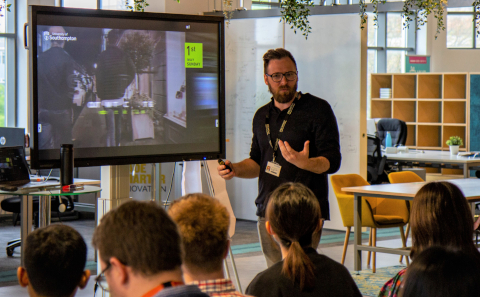
Talk to an adviser
Speak to an adviser in person or online using our Ask the Adviser service.
The UoS Career Hub is an online platform which gives all students and graduates access to hundreds of online employability resources and articles on Career Planning, Application Advice, a CV review tool, a mock interview simulator providing feedback from real employers plus much, much more. Access the Hub today and see how you can take charge of your career development!

Speak to an adviser in person or online using our Ask the Adviser service.

Access a range of resources to support you at each stage of the recruitment process.

Utilise our many resources to help you with your career planning incuding our exclusive Career Readiness Test.

Explore career options associated with your degree.

Explore a wide range of work experience opportunities such as UoS Internships and Year in Employment Placements.

Find out more about Careers Fairs and Employer Events that are organised throughout the year.

Access support to help you turn an idea into a business.

Build your network and develop skills through our Mentoring programmes.

Discover more about the further study options available.

Additional information and resources specifically for postgraduate students, including postgraduate researchers.

Additional resources and information for international students.

Information about equality and diversity in the workplace.
Use our Careers, Employability and Student Enterprise Guide to learn more about our Work Experience Programmes, Ask the Adviser, Student Enterprise and more.
The University cannot accept responsibility for external websites.